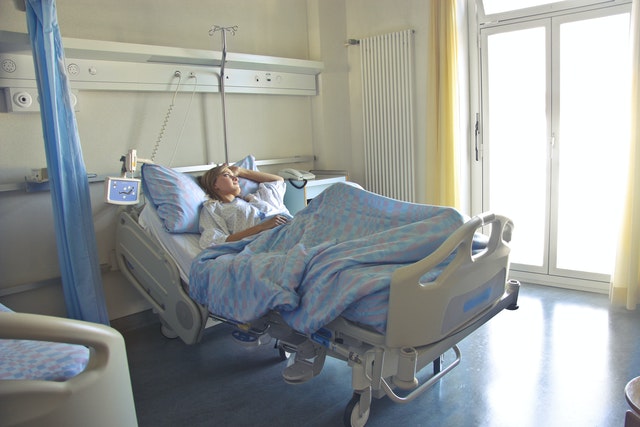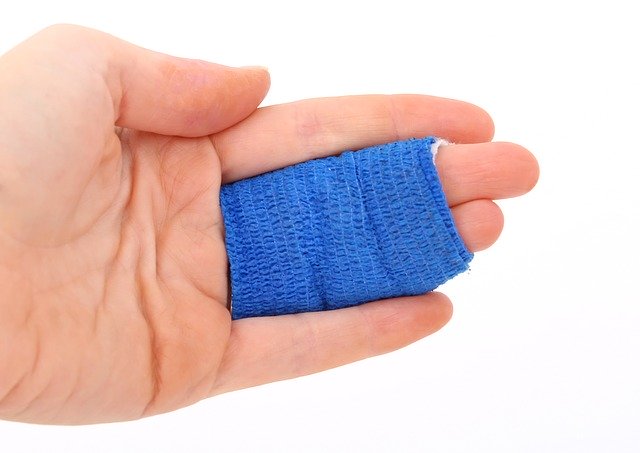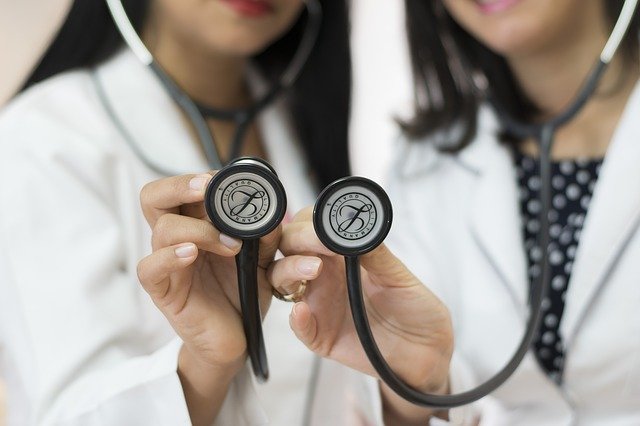
Can depression affect the immune system?
Immune system suppression
When I was struggling with the worst of my depression, I was constantly sick. I seemed to have a permanent cold. I suffered from various other conditions like digestive problems, migraines, and even ear infections. My constant state of being sick had a detrimental effect on my ability to look after my mental health.
It started to feel like a giant negative feedback loop that kept me in a cycle of physical and mental health problems.
My doctors had lots of advice for me about how exercise would improve my mood. But when I was constantly sick, physical activity was impossible. Instead, I felt exhausted and weak and ended up laying around more. And because all I did was lay around, my mental health suffered in turn. Many individuals with depression and anxiety experience the physical effects it can have on your body. And a suppressed immune system is one of those effects.
Subtle signals from your immune system
Most depressed people I spoke to experienced something similar. Some suffered from excessive tiredness. Others experienced everything from rashes to coughs and even frequent falls and sprains. At the time, I thought I was just getting older and my body was reacting to age. But then I saw many people my age in great health and without a whole range of health problems. It definitely made me wonder what was going on.
“You're in pretty good shape for the shape you are in.”
- Dr. Seuss
My first thought definitely did not go to my depression. Partly because nobody had mentioned being randomly sick all the time as a symptom. And partly because I was not so deathly ill that I needed to be hospitalized. It snuck up on me over time. The constant sniffly nose. Just feeling tired and a general soreness throughout my body. And the sore throat that just randomly appeared every few days and then disappeared again.

The effects of depression on the immune system
Depression is a multi-faceted condition that can have different expressions in different people. Because it is such an individual condition, it has been harder for us to fully understand and cure it. While the exact causes of depression and anxiety, physically and mentally, are still not yet fully known, we are building an ever-expanding list of symptoms that people may experience if they have depression.
Many of them are well known symptoms, like sadness and hopelessness, or a general lack of interest in life. Others are a little more vague and can look different in different people. This fact often makes it difficult to attribute what is going on to depression. Especially when it comes to clinically diagnosing depression, many of these symptoms are simply not on the list.
Common symptoms

Understanding that the physical symptoms of depression can have such a wide range is important when we start to get frustrated with the way we feel on a daily basis. Sometimes it can feel like everything hurts and your whole body is against you. I’ve been at that point. And I know it is hard to feel like things will ever change because so much is going wrong and hurting.
There is a silver lining that I would like to point out though. While it’s hard to deal with so many varied symptoms from one condition, it also means that if your depression gets better, all the other conditions will just improve along with that. So your focus can remain on bettering the depression and you will see more widespread results just from that.

The immune system and depression connection
As depression becomes a more common condition in our world, we are also doing more research on where it comes from and how we can help it improve. There has been some incredible research done that suggests that depression and the immune system are linked in both directions. Meaning that problems in the immune system can actually cause depression, and depression in turn, can also cause certain types of serious illnesses.This is a true feedback loop.
It is an incredible suggestion because we currently have a very simplistic approach to the causes of depression. We believe that, in most cases, a lack of certain neurotransmitters in the brain leads to a deficiency that in turn leaves us feeling sad and depressed. Medical treatment, therefore, focuses mainly on correcting this imbalance in the brain with medications.

This new research, however, has shown that the chemical imbalance in the brain may not be the only cause of depression.
The mind-body connection
Dr. Candace Pert is maybe the first person to actually prove that mind-body connection. She was a well-known American neuroscientist and pharmacologist. Throughout her decades of work, she made numerous significant medical discoveries and also held several medical patents. She received an award from the Theophrastus Paracelsus Foundation in Holistic Medicine for her pioneering work in the area of psychoneuroimmunology.
Dr. Pert said: “Since emotions run every system in the body, don’t underestimate their power to treat and heal.” This underlines the connection between our emotions like depression and the physical effects those can have. Our mind can certainly affect our physical body and vice versa. So, while we might be focused on our depression, we might miss the physical manifestations of our depression. And this can include a grave impact on our immune system. Dr. Pert believed that since the mind and body are connected, we cannot treat one without the other. This is definitely the biggest takeaway I missed when I first struggled with depression and was constantly ill.

Major or long term conditions could cause depression
Studies have found that long term inflammation for example, can be a major contributing factor to depression and even other serious psychiatric disorders. This shows that our current understanding of what causes depression is too limited, and could explain why the medical system still struggles to treat depression fully and consistently.
Looking at it this way, it’s not surprising that depression can develop after life-changing events like a stroke or heart attack. Many people who have had a stroke or heart attack end up depressed. Sometimes so severely that they can no longer function, even though their physical ailment has been treated. The shock to their physical body has been healed, but the impact on their mind is usually not considered as needing treatment.

Keeping this in mind can also be an important factor in how depression and other mental health problems are viewed in society. Often there is still a type of stigma found in society that treats depression like it’s not a “real” medical condition. And like the person ought to just “snap out of it” to get better. Seeing that there are distinct physical causes that contribute to depression reiterates the fact that this is simply not true. Depression stands firmly as a complex and very real medical condition.
One of the best things my therapist taught me is that I should treat my depression no different from a physical injury like a broken arm. That way I understand that there is nothing wrong with me for having this current disability. It’s not “my fault” for the way I feel, and that I should not be ashamed to admit or talk about how it affects my life.

Depression can weaken the immune system
On the other hand, much research has shown the more commonly known link between depression and other serious health conditions and diseases. We know that in some cases being depressed leaves you more vulnerable to frequent colds and other infections. Yet more research is showing that there is even a link between depression and more serious conditions like heart disease, type 2 diabetes, autoimmune diseases, and even cancer.

It points to a true cause-and-effect relationship between depression and serious illnesses and diseases. These types of findings make it clear that we need to broaden our approach to the effects of depression. It makes it even more pressing that we find holistic ways to treat it. And those holistic ways need to include an approach for both the body and the mind.
In a way, I was quite fortunate that my journey of breaking through depression included several holistic aspects early on. Although not explicitly recommended by my doctor, I eventually stumbled onto meditation, hypnosis, Tai chi, and a host of other alternative therapies. I did feel like supporting my mind and my body at the same time made a big difference in how I progressed. In addition, I felt that addressing the issue holistically enabled me to affect a lasting change.
It was through this holistic approach that I understood the mind body connection more and more. Over time, I began to explore the link between my depression and my constant illness. The more I learned, the more it made sense that one could affect the other and vice versa. But, you would be very surprised at how little this connection is discussed in traditional school medicine. So, it’s not really a surprise that we are unprepared for it, as we struggle toward a breakthrough and healing.

A new understanding of depression
Through my own journey with depression I found that the medical system is very restricted in how much it can help people who suffer with depression. I felt there was a true lack of understanding the scope of how depression can affect our bodies, minds and lives. I believe that we need to continue to break free of the western medical system’s view of separating the body and the mind, and understand that problems in either part will inevitably affect the other.
Mental health problems are not somehow segregated and separate from the body. And they are most certainly not “less serious” than physical ailments. The stigma that depression has associated with it in society is a major hurdle for diagnosing and treating depression successfully. No one should feel ashamed of admitting they are suffering from depression. Or be afraid to seek treatment for it. The link between the immune system and depression brings to the forefront how concretely this “condition of the mind” presents itself in the physical body. Just like a physical injury.

The validity of physical injuries
If you are struggling with depression and feel hesitant about being open about it, remember this. Remember that you wouldn’t be ashamed of a broken arm. The disability that depression can cause is no different. We have exciting new avenues of research bringing mental health into a new light these days. It is truly my hope that we will continue to do the work to accept and understand the members of our society that struggle with any kind of mental health problem, not just depression.
This is an important point to remember when you are struggling with depression. If you are taking meds and looking at your depression as an illness that needs medicating, you may be missing a huge part of the puzzle. Separating the physical and mental effects of your depression will limit the avenues of treatment available to you. And it might even mean that you stay drowning in depression without finding the help you need.

The Takeaway
Looking at depression and the immune system together might be a completely new perspective for you. Considering the mind body connection might also be something you never thought about. It might also be something that does not make any sense.
But, as you consider your depression and how it makes you feel physically and mentally, you may notice certain patterns.You may notice, for instance, that since you became depressed, you have felt more tired and have had more colds.
Once you become open to the idea that the mind-body connection exists, it opens up a whole new range of options for healing. I have found that once I considered my depression and my immune system as one, I was driven to find more solutions for healing.
Always work with your doctor or health care professional, but don’t be afraid to look outside the box that is western medicine. Understand that depression has a variety of facets and looks different for each person.

Listen to your body
Especially if you are noticing an effect on your immune system, it may be time for you to consider your body and mind as a whole. There are many options for holistic, or whole-body healing available and I am sure you will find something that works well for you.
Keep an open mind as to where this journey may take you.
There may be healing methods available you have never heard of, but you may find them helpful nonetheless. In fact, I discovered meditation, hypnosis, Tai chi, acupressure and massage, all while looking to heal my depression and my body.

I would also encourage you to listen to your body. Very often, the symptoms you are experiencing are not on the “accepted” list of depression symptoms. This can include physical ailments and pains that your doctor might write off as something else. You know your body better than anyone else. And you can trust yourself to explore your depression and its various effects on your body and mind.
You deserve to take full advantage of all the healing avenues available to you. Above all, you deserve to find your own healing when it comes to depression and your immune system.
Sources
https://www.dispatchhealth.com/blog/how-depression-affects-your-immune-system/
https://www.health.harvard.edu/blog/recognizing-the-unusual-signs-of-depression-201302275938
https://www.nimh.nih.gov/health/publications/depression-in-women/index.shtml
